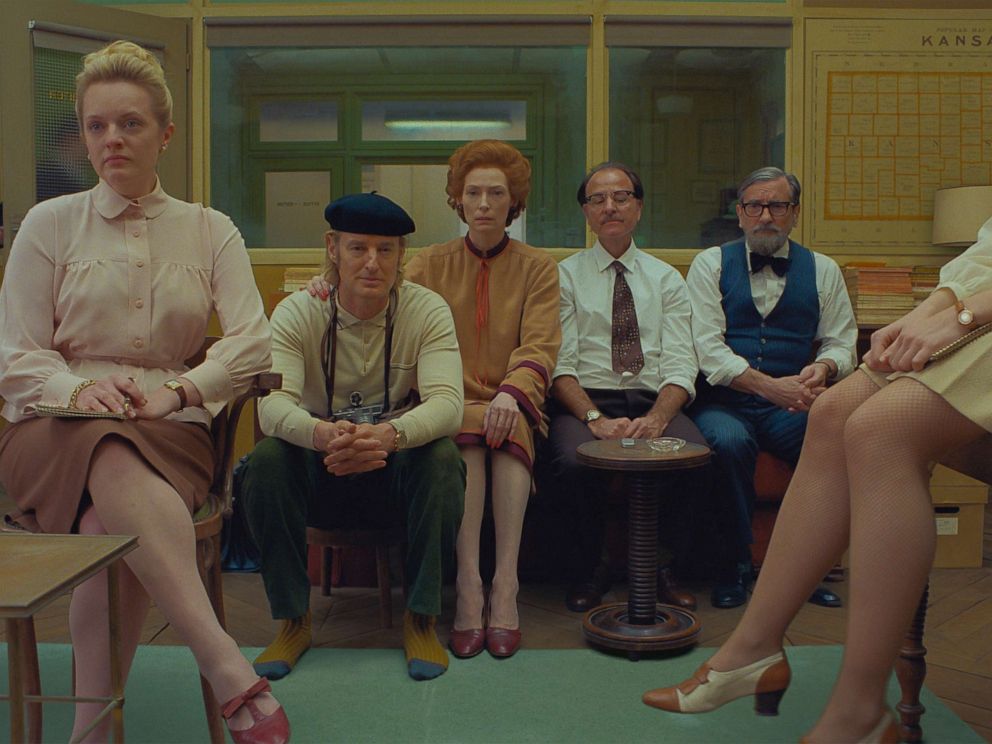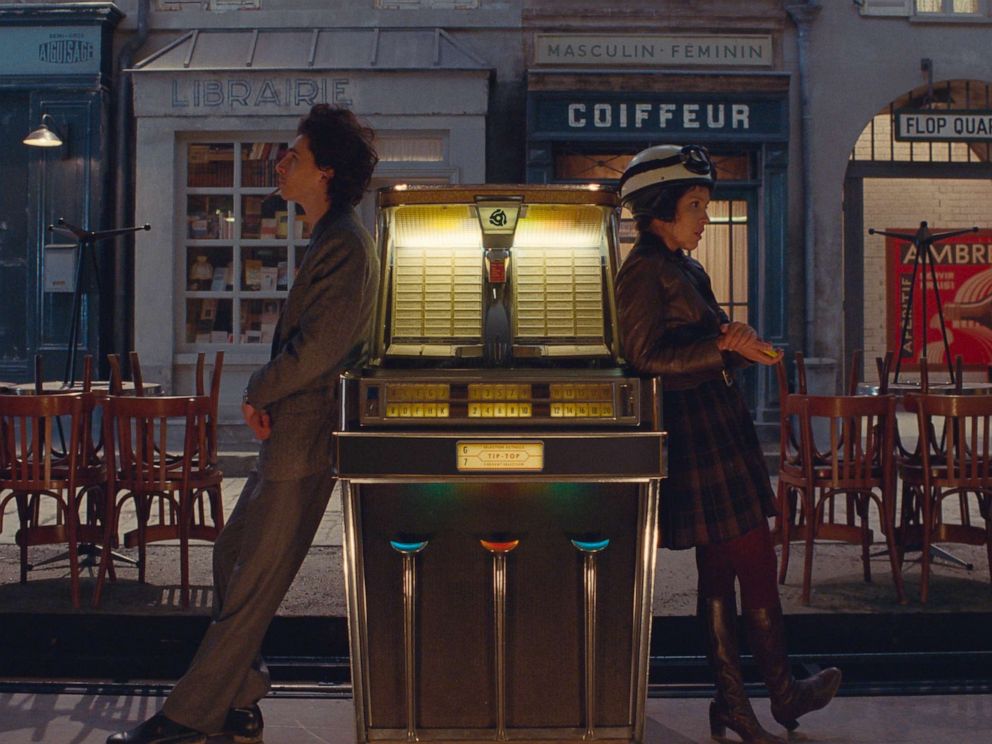'The French Dispatch' review: An exuberant celebration of the printed word
The pleasure comes in just trying to keep up with the movie.
Wes Anderson's "The French Dispatch," now in theaters where its tiniest details can best be seen and appreciated on a giant screen, is a big, fat, loving smooch to print journalism and the gifted eccentrics who practice it. This intricate, indelible, wondrously inventive jewel box of a movie will dazzle Anderson fans. His detractors will get their hate on as usual.
From his early films ("Bottle Rocket," "Rushmore") to later landmarks such as "Moonrise Kingdom" and "The Grand Budapest Hotel," Anderson has been called fussy, ornate and pretentious. And not always unfairly. But this precocious kid from Texas (now 52 and living in Paris) goes his own way and cinema is all the better for it.

"The French Dispatch" is a fictional American magazine set up in the Gallic town of Ennui-sur-Blasé to bring stories of world politics, human interest and arts high and low back home to readers who dote on idiosyncratic, ex-pat journalists who can write 12,000 words on prison cooking and make them magnificent.
It's all meant to reflect Anderson's beloved New Yorker, with richly-detailed design to reflect that publication's mid-century glories. Like a magazine, the film is divided into three main features and assorted sidebars delivered by Anderson's A-list company of all-stars.
Bill Murray tops the list as Arthur Howitzer, Jr., the editor-in-chief who talks tough but lets his writers roll with their creative impulses. "Just try and make it sound like you wrote it that way on purpose," says Murray with the martini-dry wit for which he is justly prized.
No sooner does Owen Wilson, on a bicycle, hilariously introduce us to town and office than Tilda Swinton, as JKL Berensen reports on a jailed painter (Benicio del Toro), who's hopelessly in love with his prison guard muse (Daniel Craig's final Bond girl Lea Seydoux) and heatedly resisting the efforts of a manic agent (Adrien Brody) to sell his art for money.

Next up is Frances McDormand as veteran political firebrand Lucinda Krementz. She's covering the 1968 Paris student riots and getting it on with a young revolutionary (Timothée Chalamet). The two actors have great inter-generational fun with their bizarro coupling. So will you.
Finally, Jeffrey Wright, inspired by Black essayist-activist James Baldwin, plays Roebuck Wright who's filing about a world-famous police chief (Stephen Park) and a cabal of kidnappers who demand the release of a mob accountant (Willem Dafoe).
Got that? No worries. The pleasure comes in just trying to keep up and watching Anderson pull out his arsenal of artistic flourishes, mixing live action and animation (shades of his "Fantastic Mr. Fox" and "Isle of Digs"), color and monochrome, slapstick and romantic longing.
Download the all new "Popcorn With Peter Travers" podcasts on Apple Podcasts, Spotify, Tunein, Google Play Music and Stitcher.
At times, "The French Dispatch" appears to be coming apart at the seams, but the movie is held together by Anderson's commitment to using his cinematic grasp of image and sound to celebrate, of all things, the printed word.
The clacking of typewriter keys and the flipping of pages in a magazine are music to Anderson's ears. There was literary life before digital -- tactile, smudgy and irresistible. And the proof is right here in Anderson's exuberant gift of a memory piece.




